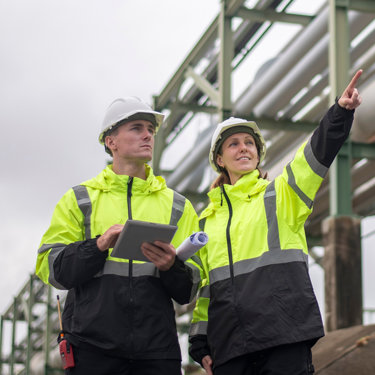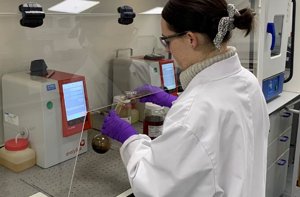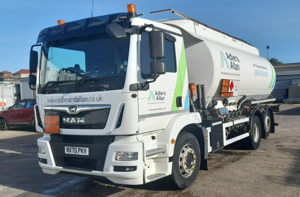
Fuel uplift and transfer
Ready to discuss your project?
Please leave your details and a member of our team will reach out to discuss your requirements in more detail and arrange next steps.
We uplift product and off-spec fuels in emergency situations following misfuelling, contamination or to reduce risk to the environment in the event of tank failures.
We also work on planned tasks to ensure compliance, minimise operational downtime, transfer stocks or assist in grade changes and tank flushes.
Added value
Expertise
Experience
Capability
When is a fuel uplift required?
- During an environmental emergency incident, product may be required to be uplifted from tanks / stricken vehicles.
- To restore fuel following misfuelling or crossover incidents on forecourts, haulage yards, and domestic properties.
- To remove contaminated fuel from tanks (typically after long-term storage i.e emergency generators).
- To remove redundant fuel for site decommissioning / refurbishment.
- For tank cleaning and inspection purposes.
- To dispose of off spec fuels.
- To move fuel from one tank to another.
- For airplane defuels in the event of a maintenance issue or change in planned routing.
Fuel uplift process
We can uplift high-flashpoint and low-flashpoint fuels.
The flashpoint of any liquid is the lowest temperature at which it will produce sufficient vapor to create a flammable mixture in the air. The lower the flashpoint temperature, the easier it is to ignite the air if an ignition source is present. The higher the flashpoint, the safer the material is to handle.
Low-flashpoint fuels include petroleum spirit and avgas and require specialist vehicles with spark arrestor Chalwyn valve compressors to uplift and transport in explosive environments. These environments are controlled by the ATEX legislation.
ATEX
ATEX is the name commonly given to the two European Directives for controlling explosive atmospheres: 1) Directive 99/92/EC (also known as 'ATEX 137' or the 'ATEX Workplace Directive') on minimum requirements for improving the health and safety protection of workers potentially at risk from explosive atmospheres.
With low-flashpoint fuels we will always use an earthing cable and air pumps when uplifting product to ensure continuity of set-up. When pumping liquid through a hose it can create friction and static. The earthing cable ensures there is no risk of ignition.
High-flashpoint fuels include gas oils (such as red diesel) and kerosene. These fuels can be uplifted directly onto an uplift ADR road tanker. Our fleet of Pet Reg uplift road tankers are all equipped with reversable pumps, PTO’s, rear ladders and hand rails enabling operatives to uplift with clear view into the tankers pots to prevent overfill and spills.
A fuel transfer still requires an uplift but involves onward delivery to a second location.
Recycling fuel
In many cases mixed fuel can be re-refined and put back into the oil market as a new fuel. This prevents the fuel from being disposed of as a waste. Ultimately re-refining fuel is ensuring recycling is carried out rather than disposal. As a result we can offer a rebate on off-spec fuel enabling the end customer to recoup some of the costs.
Grade changes
If you are looking to change the fuel in your tanks, our uplift specialists can support you with this.
Emergency fuel delivery
We can provide 24/7 – 365 emergency fuel delivery on a range of fuel types within mainland UK to any business that relies on fuel for its operations such as retailers, logistics, ports, and data centres.
Our fuel delivery service is available as one-off deliveries or longer-term solutions. We have our own fuel stores up and down the UK and access to partners’ major suppliers.
Key stats
- 0Total Amount of aircraft emergency defuels by SFS within a year - 20.
- 0KTotal fuel defueled from aircrafts within a year - 129,242 litres.
- 0Total Emergency Forecourt crossover attendances within a year - 75
You might also be interested in...
Environmental compliance today, creating a sustainable tomorrow
Helping you reduce risk to the environment and your operation by managing assets compliantly while achieving commercial, ESG, and net-zero goals.
Contact our experts


